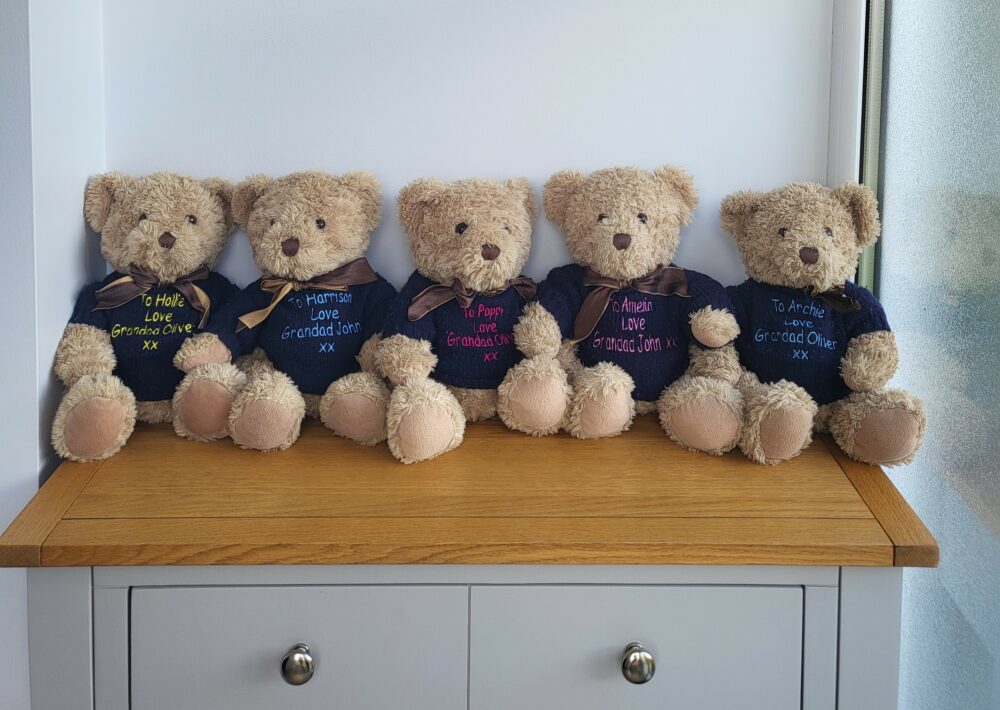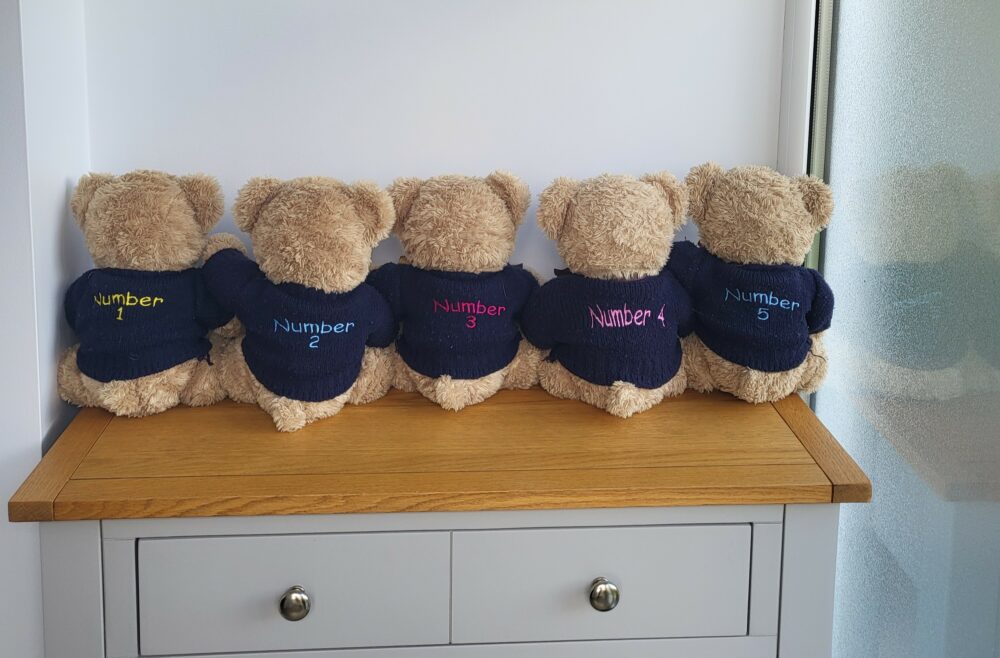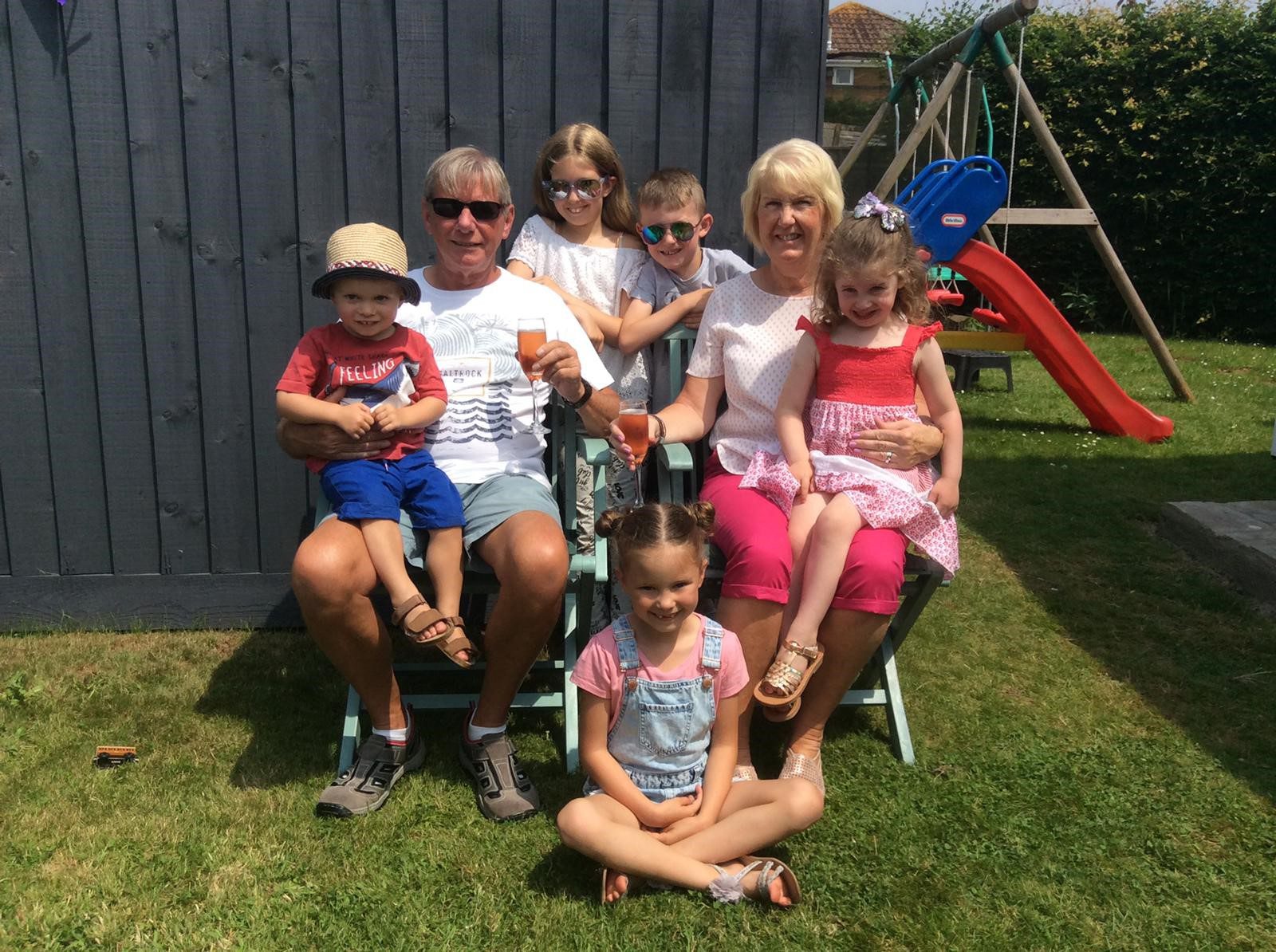A story of how teddy bears brought comfort and connection to children after the loss of their grandad
‘Number 1, Number 2, Number 3, Number 4 and Number 5’ is how John jokingly referred to his five grandchildren. He had a wonderful sense of humour and he was an important part of his grandchildren’s lives. Soon after John had passed away in Rowcroft’s Inpatient Unit, the children were each given a bear (with their unique number on its back). The children called these ‘grandad’s bears’; they knew that with these bears by their side, they could feel close to their grandad forever.
Remembering Grandad
“Dad was a big character and we were such a close family,” say John’s daughters Becki and Katie. “When he was diagnosed with sinus cancer, everyone was affected. It was hard to know how to break it to the children – when to tell them and what to say, especially when his appearance began to change. We explained that Grandad was going to die but that they could still visit him at the hospice and ask as many questions as they wanted.
“When Dad died, it was important that the children had something more to remember him by. The teddy bears are symbols of Grandad and carry enormous meaning and comfort. They say ‘I can cuddle Grandad, he’s still there’ and they cuddle the bears at night. They’ve still got something of Grandad left.


“Rowcroft supported us throughout this whole process and it really helped. They provided us with advice and booklets which explained how children feel when someone they love is affected by life-limiting illness and how best to support the child through this.”
Helping children adjust to loss
Helping children to capture and call upon memories as part of the adjustment to loss is a key part of the hospice’s work with children. To support with this, Rowcroft offers a range of important tools such as memory cards, memory boxes, journals and teddy bears.
Rowcroft’s social workers liaise closely with families, ensuring that children are included and that their voices are heard, giving parents the confidence and skills to communicate, and signposting to a wider range of resources and support. “All the research and evidence points to the fact that children manage things much better when they’re involved and included, and where there are open and honest conversations,” says Emily Madsen, Rowcroft’s Social Work Team Leader.
“We recognise that a death in the family affects everyone. Just because children may not be able to verbalise their anguish, they are still feeling it and they understand that something very difficult is happening. We support them to express that if they want to, or to ask questions, or to be involved. We work alongside families to help ensure that children have a choice in things and that communication is as clear as possible.”

